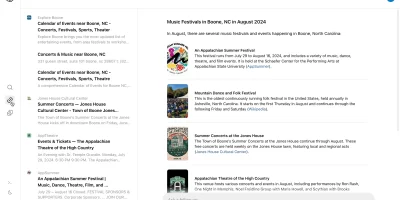The problem with mobile phones is that everyone wants them to work like a regular computer despite lesser hardware specs. At least that is what Allan Knies of Berkeley thinks – and I agree. That is a problem that can be solved, if Byung-Gon Chun, Petros Maniatis and “the cloud” have anything to say about it (pictured in order listed).
Chun and Maniatis have created:
a supercharged clone of your smart phone that lives in “the cloud” and let it do all the computational heavy lifting that your phone is too wimpy to handle.
Introducing CloneCloud which:
uses a smart phone’s high-speed connection to the Internet to communicate with a copy of itself that lives in a cloud-computing environment on remote servers. The prototype runs on Google’s Android mobile operating system and seamlessly offloads processor-intensive tasks to its cloud-based double.
First of all, awesome. Second of all, Android.
This isn’t mind blowing stuff – web applications like Google Docs already utilize this concept but by using a perfect copy of the phone’s software, CloneCloud can do a lot more work a lot faster than the phone itself. Best of all, CloneCloud calculates what it can do faster than the phone itself AFTER taking into consideration not only time, but battery life. And we all know battery life is a biggie.
A test applicatio using the T-Mobile G1 performs face recognition and what it took the Android Phone 100 seconds to compute alone it took CloneCloud only 1 second! But it isn’t all butter and gravy – experts also think concepts such as CloneCloud are ushering in a new age of mobile phone vulnerabilites and viruses. Of course CloneCloud could also help solve that problem since it could operate scans and detections on the device through a desktop PC and not the phone itself. The phone could even be OFF, theoretically.
Other limitations include network latency and bandwidth limitations. We’ve got Wi-Fi and 3G in areas, Bluetooth, and 4G/WiMax on the way but its all still spotty and data speed limits what computations and “heavy lifting” the clouded clone can actually improve upon.
Whether CloneCloud will find its way to commercial success is still completely unknown… but the concept is pretty thrilling. Here is the description directly from the CloneCloud page at Berkeley’s Intel-Research.net:
Bring the power of cloud computing to your smart phones seamlessly!
CloneCloud uses nearby computers or data centers to speed up your smart phone applications, bringing the power of the cloud computing to your finger tips. Currently, we are exploring polymorphic execution that makes it possible to execute applications of resource-starved devices such as smart-phones by opportunistically off-loading computation to available cloud resources in nearby datacenters. The idea is simple: clone the entire set of data and applications from the smart-phone onto the cloud and selectively execute some operations on the clones, reintegrating the results back into the smart-phone. One can have multiple clones for the same smart-phone, clones pretending to be more powerful smart-phones, etc. We can execute very expensive security-enhancing operations via cloud cloning such as virus scanning and data leak detection (a) without requiring application designers to explicitly plan for cloning, (b) without eating up the smart-phone’s battery power, and (c) with significant performance improvement.
Later this month, at HotOS XII conference in Switzerland, details of CloneCloud will be released.
[Via TechnologyReview – Thanks Marvin! ]













Both exciting and unnerving this future. Cloud computing and terminal services will be the future, but the scary part is, centralizes data into specific centers. Someone goes and blows up the G1 Cloud building, and all the phones die. Just a hypothetical scenario. ^_^
Awesome!
@Justin2: you are absolutely right and that is addressed much more extensively in the TechnologyReview article. Less in terms of “things blowing up” and more in terms of personal information being accessed. But you are absolutely right. One solution that springs forth additional problems. Why can’t we just fast forward to the solution of all problems? Probably because it involves the earth evaporating altogether. Hehe.
@Rob Jackson
That’s why there are people like me going to school to learn to solve these problems in the future. Though I’ve just scratched the surface of what I need to be that Guru… But it all looks, as I said, exciting and unnerving.
Ehhh…this can go eitherway…centralizing info doesnt really sit well to me no matter how fast it makes the phone…but then again u do it on ur cpu everytime u purchase stuff or enter passwords. as long as the guys protecting the cloud are smarters then the ones hacking into it u should be fine….just wish it was that simple…
Cool. I’ve been thinking about something similar too, but with using your desktop pc at home instead of a cloud…seems link less overhead at first.
Or just make everything web based, this is what’s going to happen anyways after time.
Ah, that is the beauty of this idea; the cloud goes away and the computing is just done locally… all code and data is in both places. Where it executes is what is dynamically determined by their stuff… very nice. Also makes for a data mirror/backup as a side effect…
Awesome idea,found very interesting reading it!!